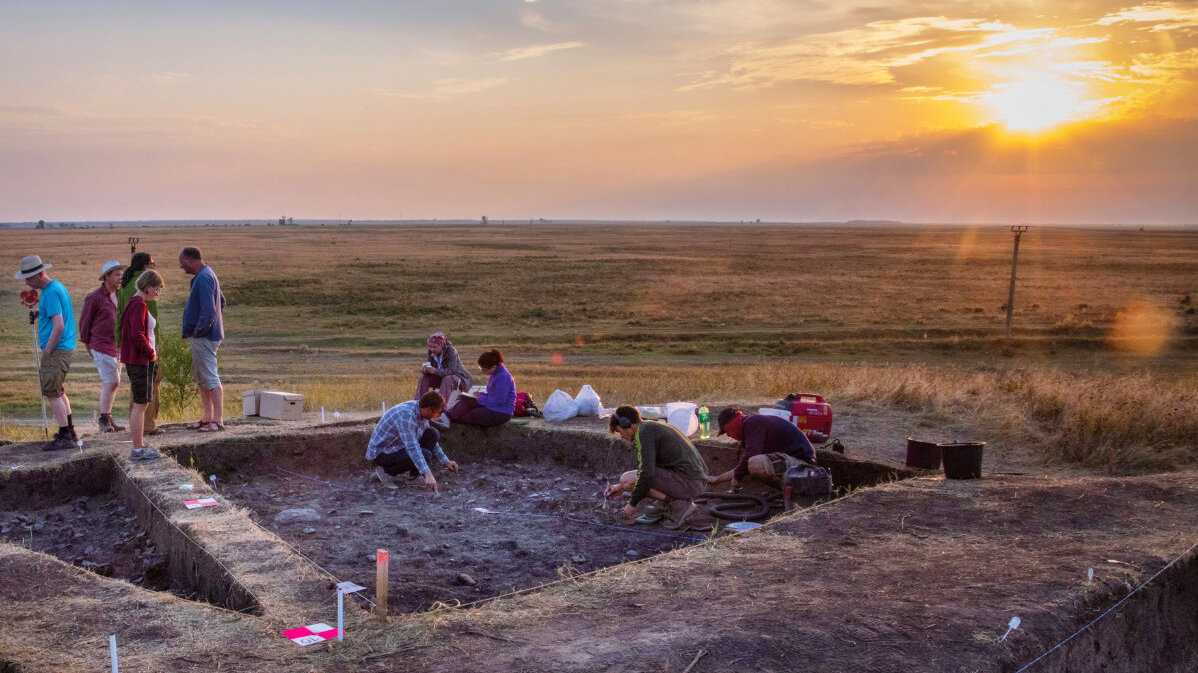The QS World University Ranking is one of the most used and therefore most influential ranking lists of academic training institutions worldwide. In the recently published report 2023 the Christian-Albrechts-University in Kiel is now a global leader with 14th place in archeology.
“This is a huge success and is due to the upturn in archaeological research and teaching, in particular through the ROOTS Cluster of Excellence and the Collaborative Research Center 1266 ‘TransformationsDimensions’,” says Johannes Müller, Professor of Prehistoric Archeology at the CAU and spokesman for the two large-scale research projects with a strong interdisciplinary focus.
This also shows the fruits of the Excellence Initiative, Müller continues: »The initiative was originally designed to make German universities internationally competitive. In the field of archaeology, this has obviously been successful at the CAU.«
Archeology in Kiel is constantly improving
Among other things, the publication achievements of the scientists working in the subject are included in the annually published subject evaluations of the QS World University Rankings. Other criteria include reputation among academics, employers and awareness among applicants. For this purpose, surveys of more than 200,000 people worldwide are evaluated.
Archeology at the CAU has continuously improved in the subject evaluations of the QS World University Rankings in recent years. »We have successfully internationalized archaeological research from Kiel. That and the expansion of scientific archeology has certainly contributed to this trend and the current success,” says Müller.
Research around the world
Archeology in Kiel is not only active in Germany, but almost all over the world in order to better understand fundamental processes in human history and their relationship to the environment. Together with foreign partner institutions, it carries out projects in Scandinavia, Eastern and South-Eastern Europe, Central Asia, the South Caucasus, Anatolia, India, South Africa, Iran and the Iberian Peninsula.
»The development of Kiel archeology in the QS ranking shows that the funds from the Excellence Strategy have brought about a sustainable leap in quality here. This is a great basis for the ROOTS Cluster of Excellence’s application for a second funding phase, which we as a university support to the best of our ability,” emphasizes Professor Simone Fulda, President of the CAU.
International attention for development in Kiel
»Kiel archeology has always been respected by colleagues abroad. But the recent development of the field in Kiel is remarkable and attracts a lot of international attention. Archeology in Kiel now offers a great technical infrastructure and increasingly multidisciplinary research involving many other disciplines in the natural sciences, humanities and life sciences,” says Professor Helle Vandkilde from Aarhus University and Chair of the ROOTS Scientific Advisory Board.
Karin Prien, Minister for General and Vocational Education, Science, Research and Culture of the State of Schleswig-Holstein adds: »Schleswig-Holstein is a powerful science location. This applies in particular to archaeology, which is recognized at the highest international level, as the current ranking shows. Looking into the past is an important basis for better understanding current processes. I am pleased that archeology in Kiel is doing such excellent science. Research breakthroughs, such as the discovery of the Rungholt church, are also arousing new enthusiasm for this subject here in the real north.«
Pioneering work on ancient DNA and archaeological geophysics
In addition to the Cluster of Excellence ROOTS – Social, Cultural and Environmental Change in Past Societies” and the Collaborative Research Center 1266 “Dimensions of Transformation: Human-Environment Interaction in Prehistoric and Archaic Societies”, Archeology in Kiel is involved in many other third-party funded projects, including as an applicant for three renowned ERC Grants approved by the European Research Council.
Institutionally, the “Archaeology” department in Kiel primarily includes the Institute for Prehistory and Early History and the Department of Classical Archeology of the Institute for Classical Archeology. As a special feature, archeology in Kiel is institutionally linked to both the Faculty of Philosophy and the Faculty of Mathematics and Natural Sciences.
Research on ancient DNA (aDNA) at the Institute of Molecular Biology and archaeological geophysics at the CAU is particularly groundbreaking. However, other important archaeological disciplines such as Near Eastern Archeology or Egyptology, which are naturally part of archeology in other places, are not yet represented in Kiel.
»The excellent place in the ranking is therefore all the more gratifying. All the other universities listed in the top 50 places offer archeology in its entirety,” emphasizes Professor Müller.
